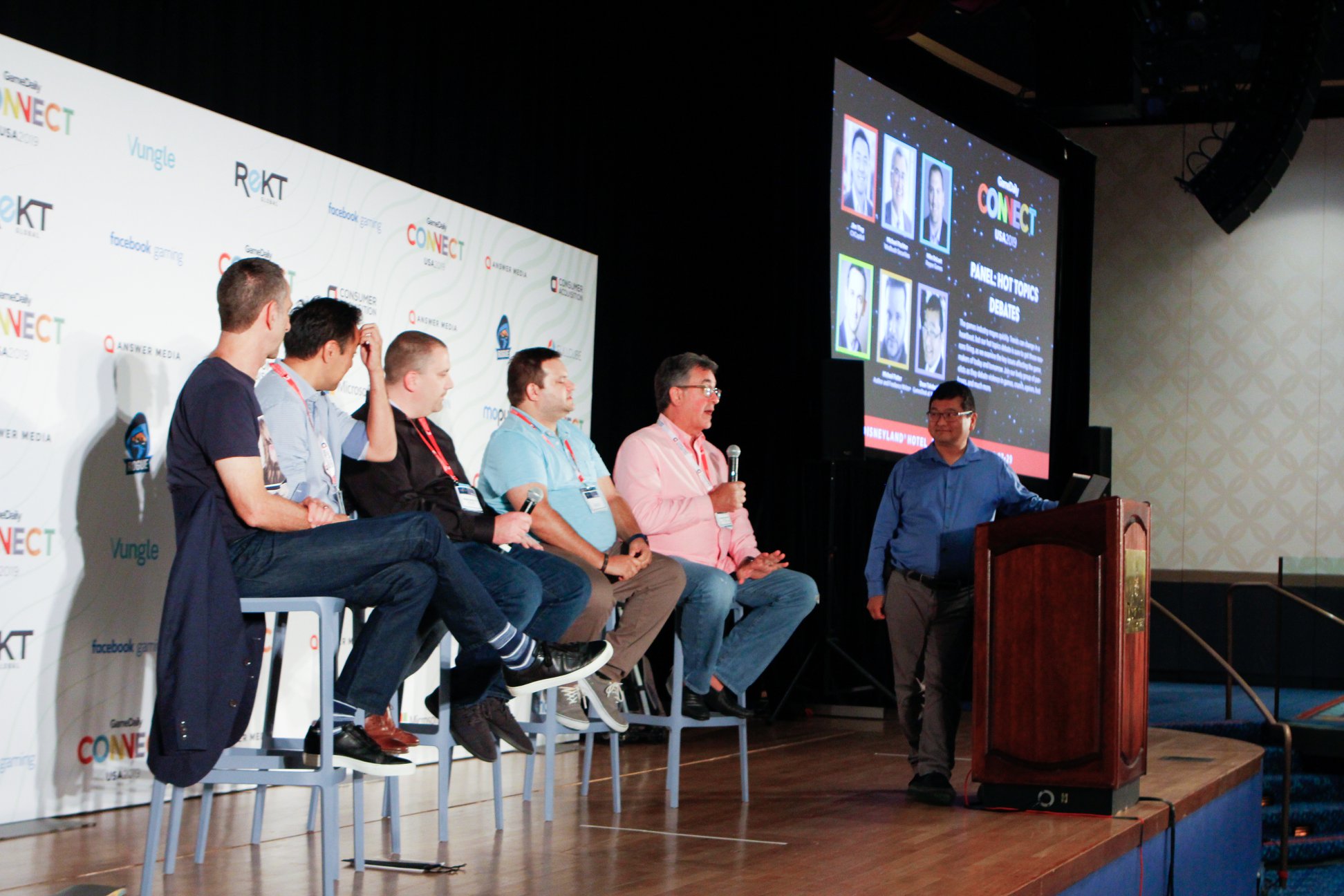We had a raucous but intelligent debate about video game hot topics at the recent GameDaily Connect event in Anaheim, California. Under the lights of the Disneyland Hotel, we held a panel discussion that touched on some of the most controversial topics with some loose cannon speakers.
I moderated a debate session that covered contemporary issues in the game business. Our panelists included Jim Ying, managing director, CVCapital; Michael Pachter, managing director for equity research at Wedbush Securities; Mike DeLaet, CEO of Rogue Games; Mike Futter, freelance journalist and GameDaily Connect contributor; and Stuart Drexler, CEO of Jago Studios.

Unlock premium content and VIP community perks with GB M A X!
Join now to enjoy our free and premium membership perks.
![]()

![]()